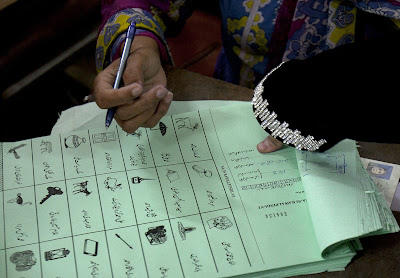By:
Ullah, Inam Gul. iukhan233@gmail.com
The Burnt Shadows is a brilliantly written prose
piece by the noted Pakistani novelist Kamila Shamsie. The novel depicts the
writer’s firm grasp over history, colonial discourses and imperial mindset. It
gives a vivid account of the relationship between the British colonizers and
the Indian colonized. The novel shows the burns and ills of the first use of
atomic weapons in the history of the planet. The novel tells a sad, yet an
interesting tale of the days the British Empire was to recede, end of
colonization and the partition of the India. The novel is set in different
countries, i.e Japan, India, America, Pakistan, Canada and areas lying between
the boundaries of Pakistan and Afghanistan. The American’s imperialist war, the
connection between CIA and ISI, the recruitment of the civilians to the war,
run recurrently in the latter part of the novel.
The novel opens with the horrors and terrific scenes
of the atomic explosions in Hiroshima and Nagasaki with a sense fear and sense
of insecurity of life of limb the war had created there. Immediate after ,the
plot leads the readers to the love story between Konard and Hiroko Tanaka. It’s after once their tryst, Konard succumbs to
death when the bomb explodes at a cathedral, the burnt bodies and flesh scatter
around, and the burnt bodies reflect their shadows on the walls. The shadow of
Konard’s body being the larger one among them.
Hiroko driven by the sense of loss and grief and in
order to escape the worries of war, comes to Dilli (Dehli) to meet Konard’s
half sister Ilse and her husband James Burton. Hiroko here falls in love with
Sajjad Ashraf, a servant of the James Burton household. Sajjad and Hiroko come
closer to each other, he becomes her Urdu tutor and Hiroko confides in him the
ills and suffering she had suffered during the war at Japan. She shows her the
burns on the parts of her body, which brings them yet more closer. The relationship
between Sajjad and the Burton household reflects the colonial mindset and the
pride the British would take in their Empire. They would all the times,
especially Ilse, treat him as an inferior and a colonized subject.
In the course of the novel the relationship between
Hirko and Sajjad Ashraf grows deeper. Both being form different cultures and
belief systems, now narrow down their alienation and differences in outlook.
Once, when they are roaming, Hirko asks Sajjad how one can become Muslim? Sajjad
enunciates the Kalma Tayyiba, Hiroko repeats after him, and she thereby embraces
Islam. The relationship later develops into marriage ties between the two.
When the Empire vacates India, Asharf opts for
Pakistan, and thus Hiroko and Asharf comes to Karachi and get settled there. The
couple is soon blessed with a male baby, Raza. Whereas Ilse, already fed up of
her husband along with her son Harry, leaves for America to live with someone
she loved dearly.
Raza when joins school, undergoes worst identity
crisis. He being a multilingual, and brought up in a multi cultural environment
proves a failure, when it comes to his interaction with his mates and peers. He
shows very poor performance in his studies, especially when it comes to the
subject of theology. The failure leads him to abandon his studies and start
working in a factory with his father. The character of Raza, symbolizes the
identity crisis, by most account the concept of hybrid Identity as propounded by
the postcolonial theorist Homi K. Bhaba.
Harry is now a grown up, and has joined the CIA and
visits Pakistan to facilitate the American war against Russia in collaboration
with the ISI. He comes into contact with Raza Ashraf at Karachi. Raza being a
multilingual and having ties with Harry, is mistaken for a Haza boy by Afghan
people in Karachi.
Raza joins the Mujahideen and later comes into to
contact with Harry who works for CIA. During the course of the events Harry is
killed and Raza grows home sick. Raza’s mother seeks help from Harry’’s
daughters and Abdullah the person who had introduced Raza to the
Mujahedeen. However at the time of exchange the security forces arrive on the
scene.
The novel gives an account of the atomic explosions
in Japan, colonial era of India, Indian partition and the American war against
the communist rise in Afghanistan.
Read also:
Categories:
Burnt Shadow
English novels.
Kamila Shamsie
Pakistani literature in English
postcolonial novels
Read More


